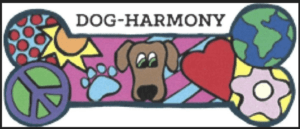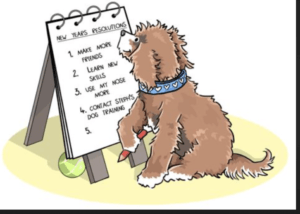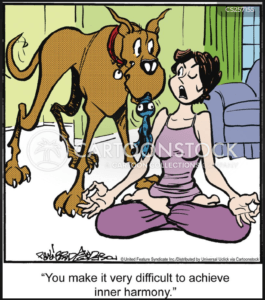
Dog training is important.
But not everybody thinks so. I didn’t until I matured and started working with dogs myself on a regular basis. During this process, it became abundantly clear to me that after providing for basic needs, training is one of the most important things we can do for our canine friends. Here are sone reasons why:
AS A KINDNESS
A quote from a book on horses says it all, I have inserted the word “dog” for “horse.”
“If you are fond of a dog and wish to do him a real favor, train him well. Teach him good manners, good habits both in the house and out in the yard. You need never worry about the future of such a dog if for any reason you may have to part with him. You assure him friends wherever he goes. Perhaps the greatest kindness you can do any dog is educate him well.”
Tom Roberts, Horse Control:The Young Horse (Self published, Australia, 1973)
Mr. Roberts believes, as I do, that the training of animals with whom we share our lives is essential because it gives them knowledge of the rules we want them to live by.
AS A DUTY
From a biblical point of view, one of the first responsibilities God gives the human being in Genesis 1:26 is the duty to rule over all the creatures of the earth. Ellen Davis, a theologian at Duke University, has clarified an understanding of the word “rule” in the following way. She says that in Genesis 1, according to the King James Version, humans are called to “have dominion over … every living thing that moveth upon the Earth.” That’s the prevailing understanding, at least. However, Davis who has written a book on the agrarian roots of the Bible, has reflected at length on that passage and found that there is a very different meaning behind the original Hebrew word radah, which is commonly translated as “dominion” or “rule.”
She says,
“When we hear ‘dominion,’ we think ‘domination,’ a heavy-handed, top-down imposition of human power on the rest of creation.” But in context, Davis thinks, radah meant something very different. Instead of “have dominion over,” Davis translates radah as “exert skilled mastery among the creatures.” (“Let’s Not Waste This Moment,” Robert Kunzig, National Geographic, 11/2020, p. 83-85)
According to this translation, God enjoins us to be apt stewards of creation. this means, among other things, training; we have a duty to train the animals towards the behavior we expect of them.

FOR THE DOG’S SAFETY
Because I run a dog boarding facility as well as training operation, I see firsthand how training or the lack thereof effects the animals brought to me for my care.
Just recently a very nice lady brought a small mixed-breed black female dog in for a boarding stay of about six days. When she first brought the dog, the dog wouldn’t eat and would not let me get near her. She also tried to run out the gate when her master left. The owner confessed to me that she spoiled her dog, for one thing by letting her eat whenever she wanted to.
I told the owner that if there was an emergency and I had to move her dog for any reason, I’d have to use aggressive tactics to capture her. This would not help to restore the dog’s faith in humanity, and it could be dangerous for me. The last time I had a dog like this under my care, I had to virtually lasso him and hold him out at arm’s length so he wouldn’t bite me. Any further work would require a muzzle because of the fear aggression demonstrated by this dog.
I further mentioned to my boarder’s owner that a regular, predictable feeding schedule would help build her dog’s confidence. I eventually succeeded in getting the dog on a schedule, eating whenever my dogs ate. I introduced a wet food to entice her palate; however, I explained to the owner that a dry food would be better for the teeth in the long run.
Finally, I suggested to my boarder’s owner that training which would teach her dog boundaries would practically eliminate the danger of the dog running out of a gate or door and putting herself in danger from cars or other animals. For example, I have a stallion on my property whom I occasionally let out for a romp. This helps me manage any built-up energy in the horse. Although my property is well gated, there is always the possibility that when the stallion is out, the little dog could decide to escape from her enclosure and meet up with him. Because he’s a stallion, he would most likely not take kindly to the intrusion and could hurt the dog if he decided to mess with the black fur ball running madly about his territory.
FOR PEACE WITHIN THE FAMILY
A lovely husband and wife with two children, a boy and a girl, recently brought their dogs to me for boarding. One of the dogs was a young, energetic German shepherd, the other a friendly Samoyed. The father and son first brought the dogs in for their boarding stay with the father walking the Samoyed whilst the son brought in the shepherd. The dogs pulled excessively, but both husband and son were strong enough to withstand the force of their pulls. Additionally, both dogs were outfitted with harnesses so their pulling wouldn’t damage the tracheas of the dogs. This is a typical remedy applied by dog owners whose dogs pull. Rather than curing the source of the pulling, they buy harnesses to mask the problem. That’s the good news. But the dogs still pull and are difficult to handle.
When the family returned from their vacation, the daughter instead of the son came along with her father to pick up the dogs. The father took the shepherd whilst the daughter was in charge of the Samoyed. This is a young teenage girl whose strength and patience was not up to the challenge of holding onto the strenuous efforts of this would-be sled dog. I was ahead of the group, leading the way out of my ranch when I heard a commotion and frustration behind me. I looked back to see a distressed and tearful young girl yelling at her dad to please help her with the rambunctious Samoyed who was pulling her along as if on water skiis. The dad rescued his daughter by acquiescing to walk two determined pullers out of my yard and into a waiting car.

This young girl, if not her brother as well, now has a negative experience with a dog, an experience that could be remedied with even minimal training. But its not only the dogs this girl now feels negative towards; she undoubtedly is angry with her dad for getting her into this situation in the first place.
In Conclusion
Training demands that we listen to the language of animals, a language that is unspoken, extralinguistic, but communicative nonetheless. Although many animal lovers today look at training as a restrictive and imperial (hierarchical) intervention into the carefree and wild life of the animal, training is actually a kind of language that requests the obedience of the animal in order to expand his capacity for responsibility, to enhance the animal’s awareness of the human environment in which the animal lives, and to encourage the animal’s desire for disciplined and thoughtful activity. (Webb,p.92).
Training ensures a harmonious relationship between dog and man, keeps the animal safe, and enables him/her to exist comfortably in any human environment.
Do you agree? Please leave your comments below.

REFERENCE
Webb, Stephen H., On God and Dogs; a Christian Theology of Compassion for Animals, Oxford University Press, 1998